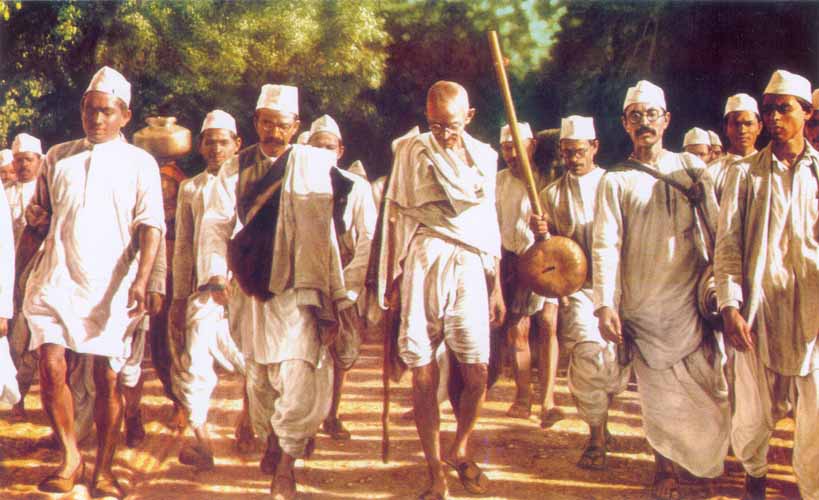
WELCOME TO SWADESHI ANDOLAN
Swadeshi concept derived in the time of our freedom struggle. It was a guiding spirit of our independent movement. The Swadeshi movement, was an economic strategy aimed at removing the British Empire from power and improving economic conditions in India by following the principles of Swadeshi. Strategies of the Swadeshi movement involved boycotting British products and the revival of domestic products and production processes. Swadeshi movement of 1905 is one of the notable movement in the history of our freedom struggle. The Swadeshi Movement of 1905 started as an Anti-Partition agitation against the British Government's decision to partition Bengal, to break up the unity and solidarity of the Bengali people standing at the vanguard of India's national resurgence.
The proposal of partition of Bengal became publicly known in 1903, followed by immediate and spontaneous protests all over Bengal. 500 meetings were held in East Bengal alone. 50,000 copies of a pamphlet with a detailed critique of partition were distributed. This phase is marked by moderate techniques of protest such as petitions, public meetings, press campaign, etc. to turn public opinion in India as well as in Britain against partition. This movement also involved the boycott of British products. Western clothes were thrown onto bonfires. To let the British know how unhappy the Indians were at the partition of Bengal, leaders of the anti-partition movement decided to use only Indian goods and to boycott British goods. People gathered at the cross roads and burnt the imported clothes that they had. People picketed the shops selling foreign goods, and imported sugar was boycotted. People also resolved to use things made only in India and this was called the Swadeshi movement. From 1905 this movement continued up to 1911. It was the most successful of the pre-Gandhian movements. Its chief architects were Arabinda Ghosh, Lokamanya Balagangadhara Thilak, Bipin Chandra Pal and Lala Lajpat Rai. After 1911 Veer Savarkar and Mahatma Ghandhi strengthened the Swadesh moovement. Swadeshi, as a strategy, was a key focus of Mahatma Ghandi who described it as the soul of Swaraj (self rule). Ghandiji gave clear cut direction about the phylosophy of this movement. Lala Lajpathrai in his book “ England's Debt to India” and Romesh Dutt in his book “The Economic History of India” clearly state that how British looted the country in their rule. Not only these books many other speeches of Ghandiji and Balagangadhara Thilak gave a clear vision about the development of a economic movement part of freedom struggle.
Though Swadeshi gained prominence during the freedom struggle it has been the part and parcel of our blood red traditions for eons. In times such as the freedom struggle this is considered an emotional issue rather than something that requires a rational analysis. In such an environment these emotions spread in the country. People boycotted all ‘videshi’ products all over the country and arranged many training programs for making swadeshi products by the freedom fighters. Wherever Ghandji went, the mahatma went with a Charka and trained the people. Thus swadeshi became a mass movement in India and generated a huge employment potential.
After independence, inspired by this ideology many people started a number of industries. But in the era of globalization, the concept of swadeshi is viewed as a rational subject. Many economists do believe that it is still a valid subject which can contribute in a big way to the development of our nation.
Even during freedom struggle the proponent of Swadeshi namely Balagangadhara Thilak and Gandhiji presented the basic concepts of swadeshi in a rational manner. The economic concept of swadeshi put forth is as follows;
- Use only indigenous products.
- Do not use any foreign product.
- Even in case of indigenous products use the nearest product available to the consumer.
- Minimum consumption (Dharward speech of Lohkmanya Balagangadhara Thilak, June 1916)
- If such products are not available start producing it (Gandhiji’s work for khadi production is case point here)
These basic concepts of Swadeshi have a lot of relevance today. In the name of globalization, products and services that come from outside are crushing our local industry reducing employment opportunities.
Swadeshi Andolan is working to create awareness among the masses about the importance of Swadeshi as a way of life and to fight against globalization and multinationals.